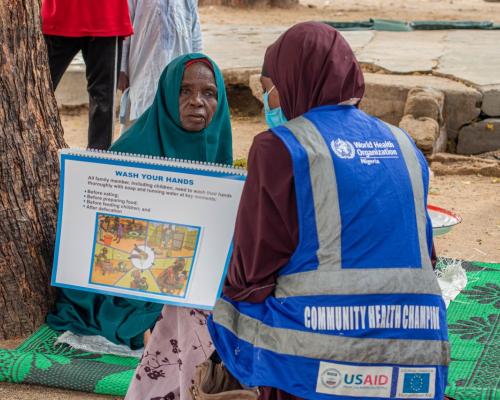
Maiduguri – Hajara Maimuna Idi is sitting under a tree at the Gubio Road settlement for internally displaced people, in Borno State, northeast Nigeria. She is baffled by the reluctance of her fellow residents to get vaccinated for COVID-19, even though a vaccination centre is located within the settlement.
“I got vaccinated because I was made aware that it was for the benefit of my health. I didn’t want to be hospitalized because of COVID-19,” she says. “The sensitization team made us understand that the COVID-19 vaccination would help build our immune systems to fight the virus. I got thrilled with the way they presented it to us,” she recounts.
Maimuna is one of the 43 community-based volunteers trained by WHO to mobilize their peers to get the vaccination. The volunteers hail from six densely populated host communities across three local government areas in Borno State.
The State Ministry of Health, with support from the World Health Organization (WHO), has been raising awareness of the COVID-19 vaccine to encourage vaccine uptake.
In the first two and a half weeks of July, volunteers helped 1,000 eligible people, either resident at the settlement or from the surrounding host community, to receive a COVID-19 vaccination at one of several immunization posts located strategically in each of the communities.
“The volunteers are getting the necessary results because they understand what needs to be done,” notes Dr Isiaka Ayodeji, WHO’s state coordinator.
Since June 2021, the fragile Borno, Adamawa and Yobe states in north-east Nigeria have received assistance from the WHO for these and other activities, thanks to a grant from the European Civil Protection and Humanitarian Aid Operations (ECHO).
Under the ECHO grant, WHO is also supporting capacity building for information and health education officers, interpersonal health risk messages, a campaign strategy, focus group discussions with community members, and radio discussion programmes and jingles containing health messages. As a result, three million people across these three states have been reached with integrated health risk messaging.
COVID-19 vaccination is a priority for people at risk, due to their vulnerability to other vaccine-preventable disease outbreaks. WHO, UNICEF, Intersos, and other partners have engaged in advocacy meetings with ministries, departments and agencies, traditional and community leaders, political leaders, and religious leaders, as well as the media. As a result, two major radio stations in the region have aired more than 65 radio spots on COVID-19 vaccination in the past six months.
“I want to appreciate both WHO and other partners for their unwavering support. The need to increase the uptake of COVID-19 vaccination is paramount. That’s why enlisting community-based volunteers to spread awareness among peers is such an effective strategy,” says Borno State’s Immunization Officer, Fakilahyel Luka.
The WHO’s Northeast Emergency Manager, Dr Richard Lako, says that awareness creation is one of the key components to increase people’s knowledge on the importance of COVID-19 vaccination.
“WHO will continue to support the Borno State government in ensuring vaccine equity is achieved,” he reiterates.


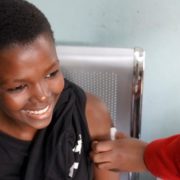


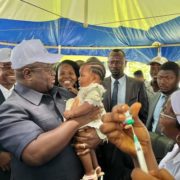
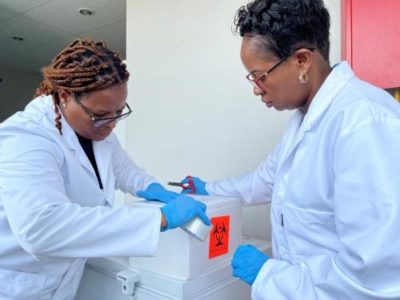


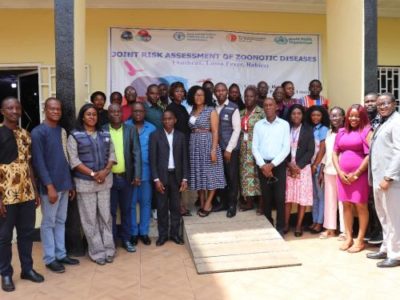

Comments